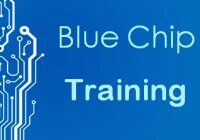 Overview
Overview
For who
This training is in addition to, and continuation of the ‘Oracle 11g – Programming in PL / SQL and – workshops “, but can also be designed for practitioners, developers, PL / SQL who already have experience with the language, and who want to systematize their knowledge and learn advanced mechanisms and solutions developed in this language.
The content of the training
- Objects, streams and complex data structures
- Advanced solutions based on PL / SQL
Exams and Certificates
The plan covers the training material required to pass the exam 1Z0-146 Oracle Advanced PL / SQL and obtain the title of Oracle Advanced PL / SQL Developer Certified Professional
Purpose of training
The training is designed to familiarize participants with the advanced aspects of programming in an Oracle database. The emphasis is on flexibility and performance solutions based on PL / SQL.
Notes
The workshops are based on the software version 11g XE
Requirements
- The free use of the basics of SQL and knowledge of Oracle database environment (preferably Oracle 11g completion of training – Native SQL for Programmers – Workshops)
- Fluency in the basics of PL / SQL (preferably Oracle 11g completion of training – Programming with PL / SQL I – Workshops)
Course Outline
Complex data types, collections
- Subtypes
- Cursor variables and dynamic cursors
- Associative arrays, collections
- Actions mass, bulk, forall
- Exception handling bulk operations
Object orientation in an Oracle database
- Types (classes)
- methods of objects
- permanent Collections
- Functions Panel
- streaming Features
- Create your own aggregate functions
Calling functions in SQL, constraints, levels of purity, determinism
Organization of program units PL / SQL
- Permissions in PL / SQL
- Context name
Integration with other languages
- Using JAVA
- Linking procedures C language
- Native compilation of the C language
Ready solutions
- Create the application context
- Mechanism of Virtual Private Database (VPD)
- Support lobbying
- Profiling code
- Tracking code
Productivity PL / SQL code
- Bind variables in SQL statements and the statistical distribution of
- cursor Sharing
- Objective query optimization
- Feather short procedures at compile
- Caching functions and query results
